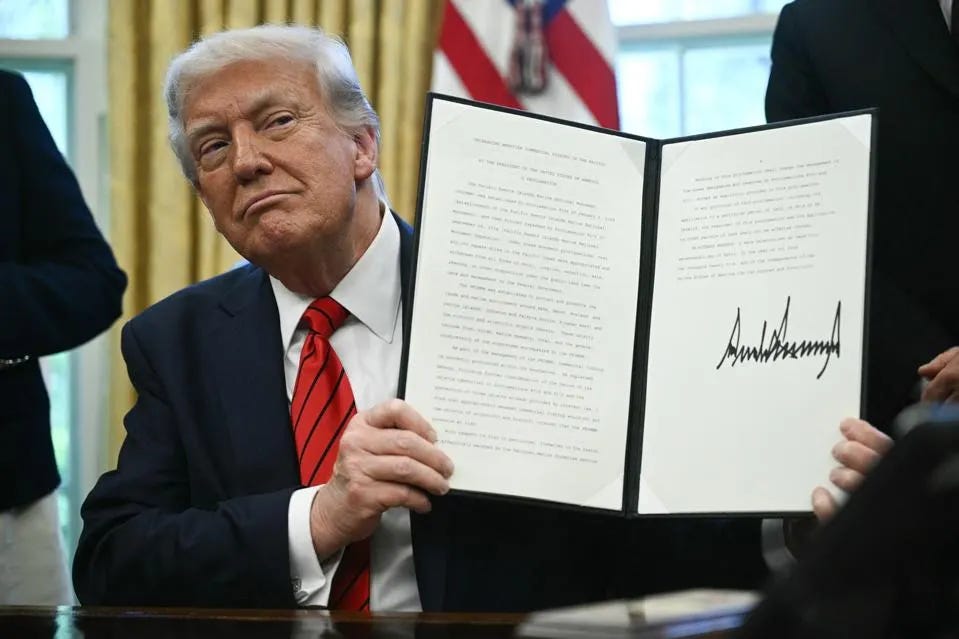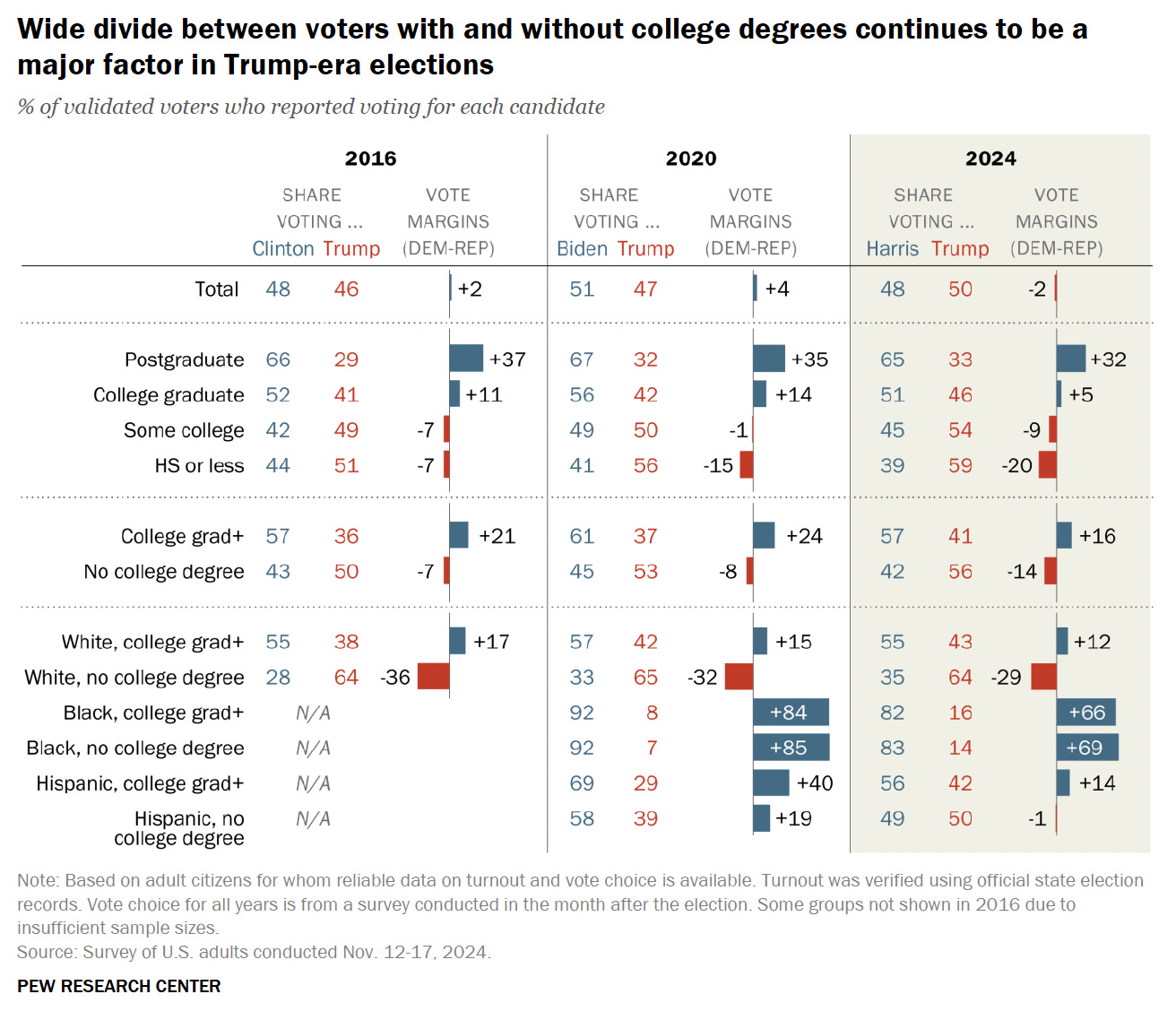Trump’s War on Students Has Begun
Our higher education system will never be the same.
Medical school costs on average $68,924 a year.
Thanks to Trump’s “One Big Beautiful Bill,” starting on July 1st, the federal loans available to pay for medical school will be capped at $50,000 a year.
That leaves an $18,924 gap for the average student—a new financial burden they’ll face each year on top of the already demanding process of pursuing a medical education.
How will they cope?
Some will be unaffected—those with wealthy family to support them, for instance. But others—the vast majority who enter into medical school with little savings or support—will be left will a perilous choice:
Turn to predatory high-interest private loans, or forgo their dreams of a career as a physician entirely.
Medical students will not be the only ones faced with such difficult decisions in the coming months.
Law students will be subject to the same annual loan cap. So will business students.
At my law school, tuition alone is $77,700. Add in other academic costs (like books, which run into the thousands) and basic living expenses, and the total easily exceeds $100,000 a year—double Trump’s cap.
While I’m fortunate enough to be attending my school on a merit-based scholarship, the vast majority of my classmates are not.
Future students will face an impossible choice: Do they chase their dream and drown in private debt, or do they abandon it altogether?
For those who choose to stay the course, how will their new debt burden shape the path they take? A student who once dreamed of public defense or immigration law may feel compelled to take the highest-paying corporate job instead, not out of passion but out of sheer necessity.
This is how a generation of doctors, lawyers, and business leaders is reshaped before it even begins.
And that’s intentional.
One of the strongest predictors of voter behavior is education level.
In the last election, students who had a graduate or professional education (past a standard 4-year bachelor's degree) went to Harris by 32 points.
Trump knows his base disproportionately includes low-information voters. After all, he once said, ‘I love the poorly educated.’
He’s not wrong to. A University of Alabama study found that those in their sample who had low political knowledge were 20% more likely to vote for Trump.
That is the game here. Make graduate education harder to afford, and fewer people will pursue it. And the fewer people who pursue it, the smaller the share of the electorate that will ever stand in the voting booth with the perspective that higher education provides.
The tragedy is that it’s not only students who will lose, but the country. We will lose doctors who could have healed, lawyers who could have defended the vulnerable, and entrepreneurs who could have built. We will lose as a society legions of talented professionals because the necessary education was priced out of reach.
When I walk through the halls of my law school, I see dreamers and strivers. I see the children of immigrants, the first in their family to graduate college, the ones betting everything on the belief that education can fundamentally change the trajectory of their lives for the better.
To slam the door on them is not just cruel—it is fundamentally anti-meritocratic. It leaves us with a society where the only voices in the professions that shape our democracy are those who can already afford the ticket.
And that is what this war on students is really about. Not saving a few federal dollars. Not bringing down costs. But about Power.
This article was written by Lead Policy Advisor Micah Erfan.
Find his socials below:




More idiotic executive orders! He does want a stupid country incapable of critical thinking. Isn't that the main MAGA cult?
Well who needs doctors if they take away everyone’s health care? 🙄🤦♀️ of course they all have their private doctors most likely and think of the money they can make??